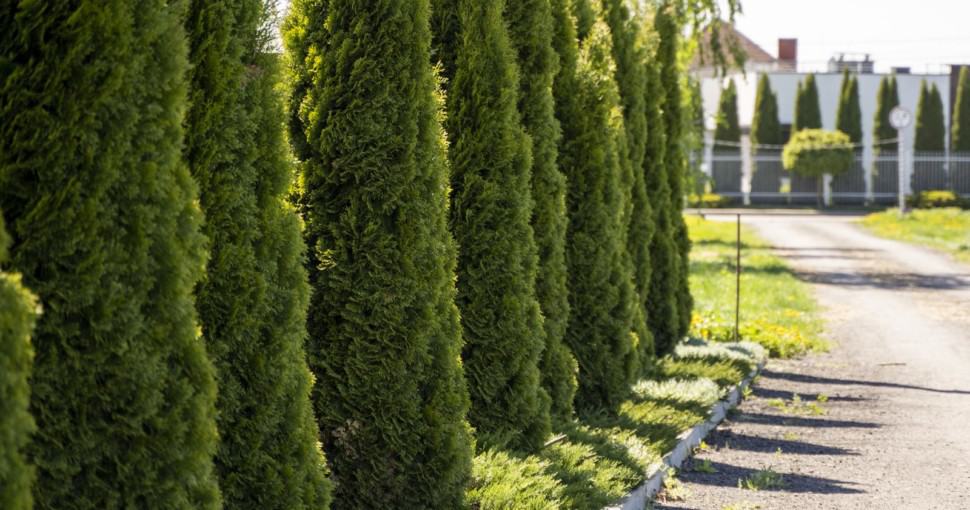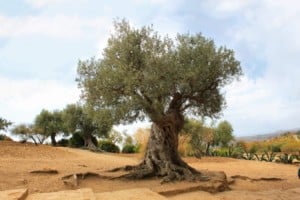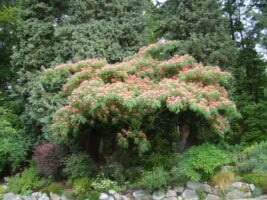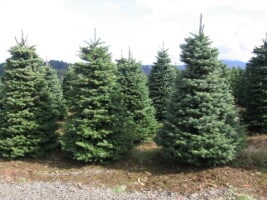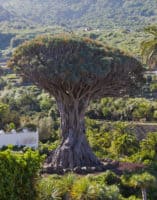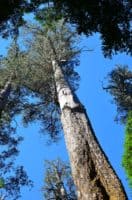The Arborvitae is an immensely popular tree used in landscaping across the US. This tree makes for an excellent, fast-growing privacy screen in almost any location. Its thick, lush green foliage creates a highly desirable aesthetic that will work extremely well in most gardens.
Contents
Despite its advantages, the Arborvitae cannot grow in some climates such as Illinois. Thankfully, several similar trees will achieve a similar final result, such as the Taylor Juniper, Spartan Juniper, Mission Arborvitae, and the Leyland Cypress, to name a few.
Despite the inability of the Arborvitae to be grown in every climate, this doesn’t mean that you won’t be able to grow a privacy hedge of the same caliber in your local climate. All it will require is to use a tree that is better suited to your area and your aesthetic goals.
Trees Similar To Arborvitae
If you are looking to create a privacy hedge, visual barrier, or wind barrier, the Arborvitae is generally your “go-to” thanks to its ability to grow quickly with bright green foliage to provide year-round privacy screening.
The Arborvitae is somewhat of a modern classic for landscaping, most notably when used for privacy hedging. This tree has low maintenance requirements, grows extremely well when planted in multiples next to one another, and creates the ultimate privacy screen.
With green foliage throughout the year, extremely fast growth, and easy care, this tree has gained its popularity for a good reason.
Most often, homeowners seek out the Arborvitae to create a dense privacy hedge that will block the view of something undesirable. This could be an unsightly view over something in the distance or the view of a neighbor’s new backyard shed.
Alternatively, your neighbors might have built an extension to their house that overlooks your back garden, instantly creating an urgent need for privacy for your own home. Arborvitae generally presents the ideal solution to problems such as these due to its fast-growing nature as well as its minimal need for pruning.
The Arborvitae is also able to maintain its tight shape and density throughout its lifetime. This ensures that the Arborvitae is the perfect tree to provide a visual barrier or privacy hedge as well as a wind barrier for a previously unprotected part of your garden.
If the Arborvitae is not available in your area for some reason, or the climate will not allow for the easy growth of this tree, there are several alternatives as mentioned above that will provide the same benefits as the Arborvitae in every aspect, with the potential to be more suited to your specific climate.
In climates similar to Illinois, the Arborvitae may struggle to survive. These trees do not tolerate shade or poorly-draining soil. Soil that is too wet or too dry will also prevent Arborvitae from growing successfully, as will the presence of strong winds and deer who see the Arborvitae as their natural food source.
Thankfully, there are several alternative trees to the Arborvitae that may be better suited to your specific climate. To establish its suitability, check the climate requirements of any tree you intend on using and ensure that it will be able to survive in your local climate.
1. The Taylor Juniper
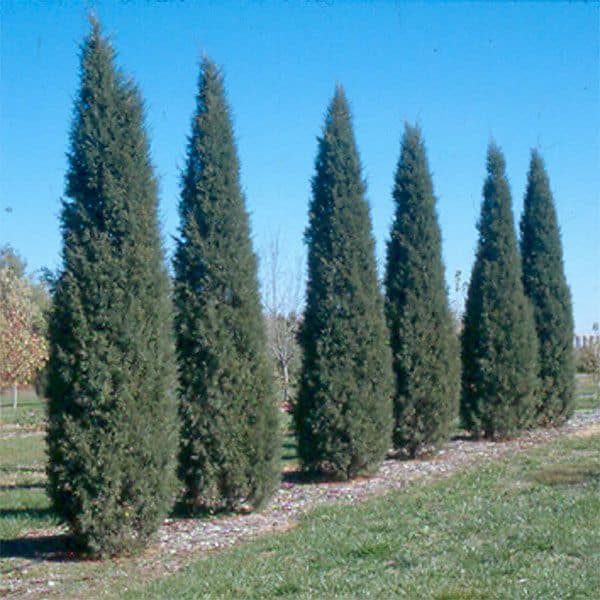
The Taylor Juniper, a narrow and tight tree that grows to around the same total size as the Emerald Green Arborvitae, is an excellent alternative tree. It is better suited to climates similar to Illinois.
2. Mission Arborvitae
There is another variety of the Arborvitae that is native to Illinois, naturally presenting a better alternative if you are working in this climate. Called the Mission Arborvitae, this tree creates a rounded shape that results in fewer total trees needed to create a successful privacy screen.
3. Spartan Juniper
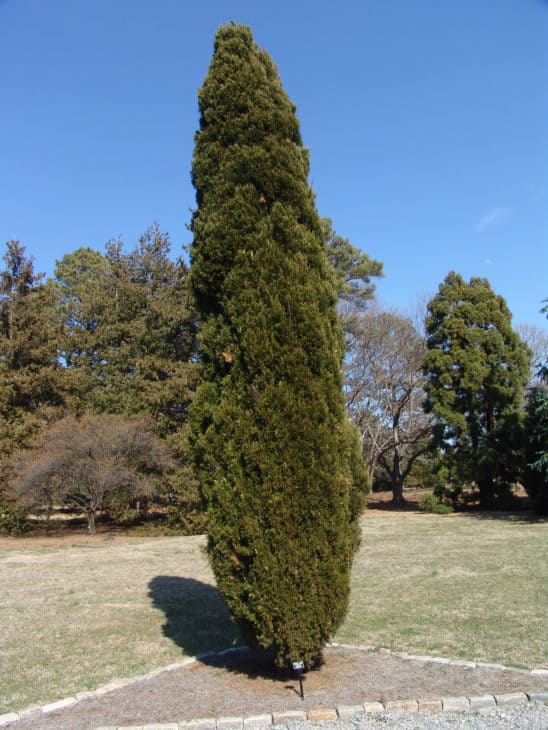
The Spartan Juniper is a slightly wider tree than the Emerald Green Arborvitae; however, it boasts a deep green color that is extremely similar to that of the Emerald Green. This makes it a great alternative, especially due to its aesthetics.
4. Blue Arrow Juniper
Alternatively, investigate the use of the Blue Arrow Juniper with its silver-blue leaves and its ability to grow up to 15’ feet tall and 2 to 3 feet wide.
5. Japanese Cedar
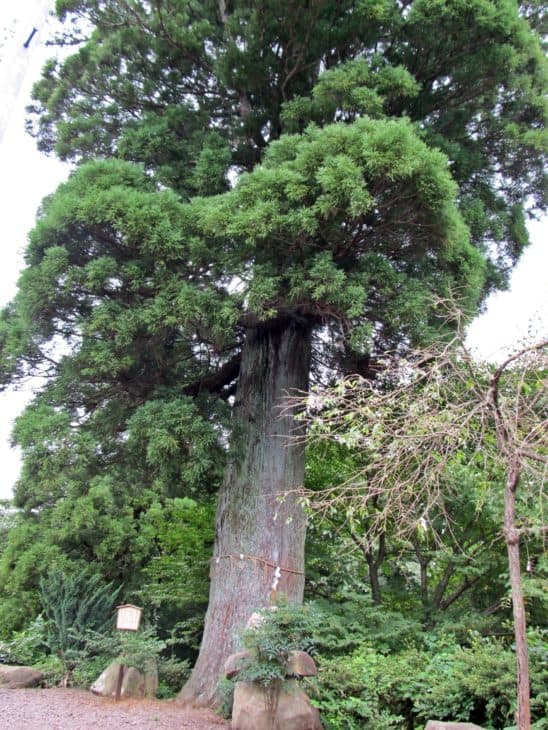
Another alternative is the Japanese Cedar (Or Cryptomerica Radicans), but bear in mind that this tree can reach up to forty feet in height with a spread of around twenty feet. This is a fast-growing evergreen that thrives in full sun as well as partial shade.
The Japanese Cedar is also extremely tolerant of many different types of soil conditions, including clay. This makes it a versatile tree that will have success in the majority of climates, providing excellent privacy as well as a successful windbreak.
6. Leyland Cypress
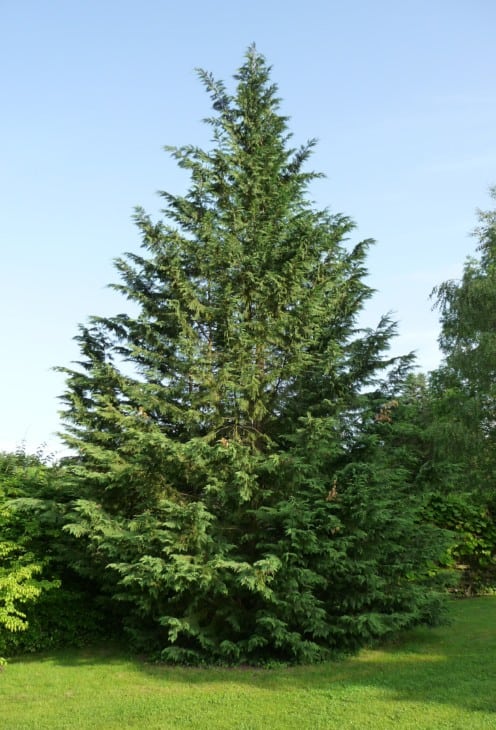
The Leyland Cypress is an excellent alternative tree that is similar to the Arborvitae. Still, it can reach between sixty and ninety feet in height. One should therefore exercise caution when considering this type of tree.
If a tree intended as a privacy hedge is capable of growing to such heights, it will require regular maintenance in order to ensure that it remains at a reasonable height.
7. Nellie R. Stevens Holly
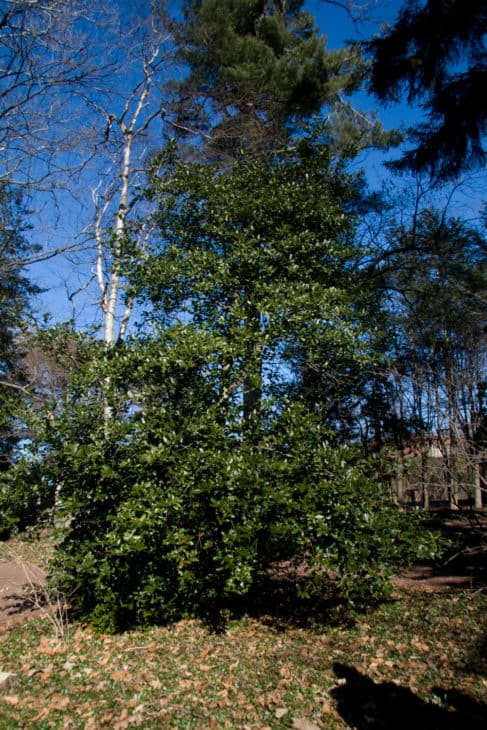
Nellie Steven’s Holly is another tree that presents an excellent alternative to the Arborvitae. It is extremely fast-growing, withstands heavy pruning, and is highly tolerant of shade. This shade tolerance gives it a significant advantage over the Arborvitae, which does not tolerate shade whatsoever.
A few other alternatives worth investigating include the Columnar Narrow Spruce, Skyrocket Juniper, Italian Cypress, Incense Cedar, and the Leyland Cypress.
Other Alternatives To Arborvitae Privacy Trees
8. Vine On A Trellis
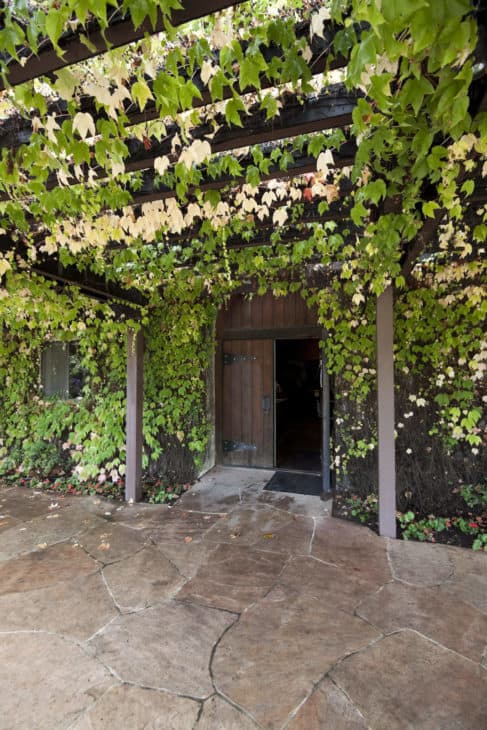
If you are looking to create a privacy hedge but would prefer to steer away from the typical Arborvitae and those trees similar to it, there are several alternatives that can create an equally appealing privacy hedge.
Firstly, a fast-growing alternative would be to grow a vine on a trellis. This option allows you to secure a trellis at any height you prefer, almost instantly creating privacy where it’s needed. Next, you can plant any fast-growing vine of your choosing. There are countless vine options available that will quickly be able to provide you with a fragrant, flowering (if desired) privacy hedge.
9. Magnolia Grandiflora
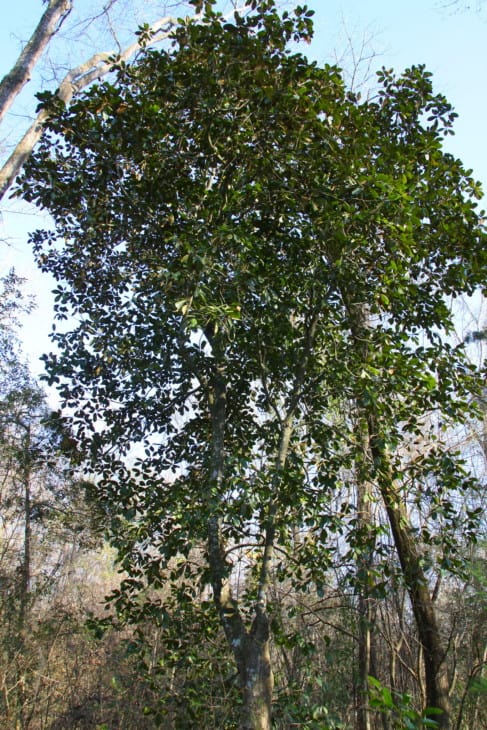
Another good alternative is to plant a Magnolia Grandiflora. These elegant plants can be pruned in order to become tall hedges. Left untouched, the Magnolia Grandiflora can grow as wide as 8-10 feet and as tall as 20 feet. The best benefit of this plant is its large, beautiful, and fragrant flowers that appear in Spring.
The Magnolia Grandiflora is an excellent alternative to the arborvitae in that it provides a privacy screen with exceptional floral beauty.
10. Fargesia Robusta
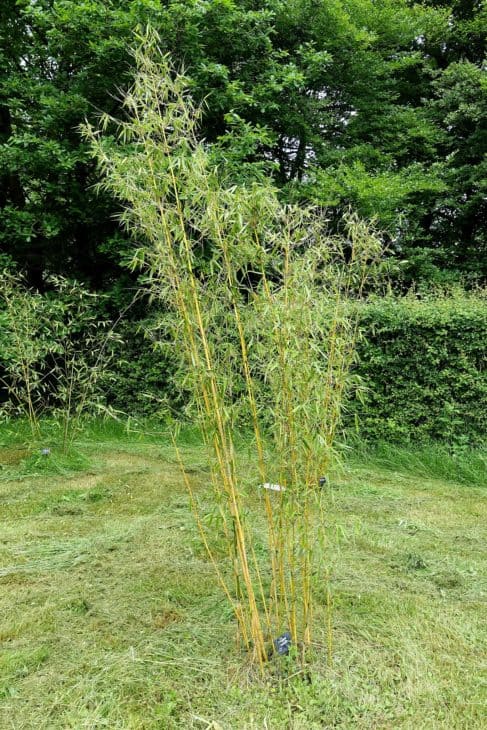
Fargesia Robusta is a clumping type of bamboo that is able to reach fifteen feet in height and can quickly grow into a solid privacy screen within 5 years.
This provides a similar type of privacy screen to the Arborvitae. However, it has a slightly different aesthetic and is able to grow to full height far quicker than an Arborvitae.

